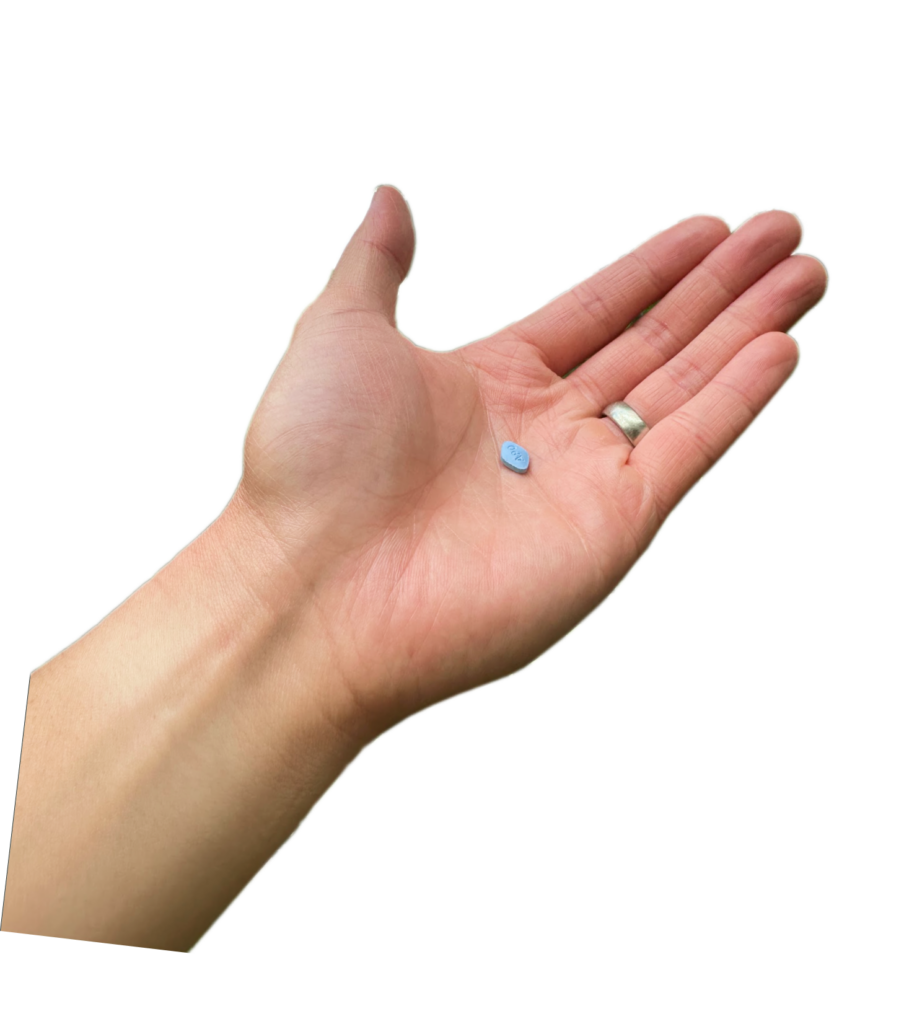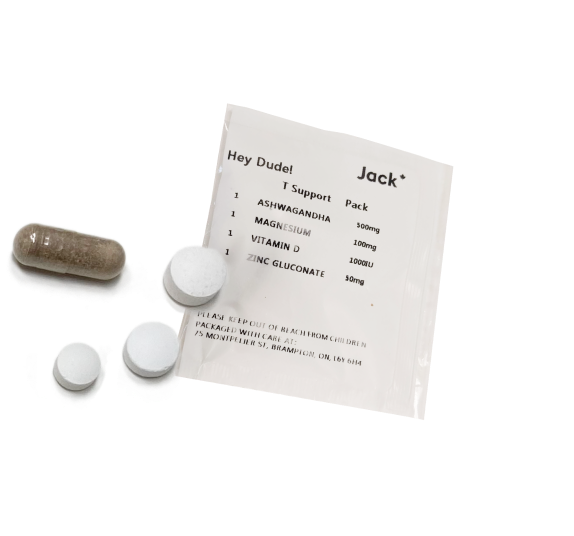Exploring the potential of Cialis, traditionally used in men, for female sexual dysfunction (FSD) presents a fascinating intersection of medical research and patient care.
This content delves into the considerations surrounding the off-label use of Cialis for women, investigating its possible benefits, efficacy and the critical importance of safety and personalized healthcare guidance.
As we navigate through the complexities of health, the adaptation of treatments across genders underscores the nuanced understanding of physiological differences and the individualized nature of medical care.
By examining Cialis’s efficacy in women, potential side effects and contraindications, this discussion aims to provide a comprehensive overview for individuals considering this treatment option, highlighting the paramount importance of informed decision-making in collaboration with healthcare professionals.
What is Cialis?
Cialis, also known by its generic name Tadalafil, is primarily recognized for its efficacy in men. It belongs to a class of drugs known as PDE5 inhibitors, which also includes Viagra (Sildenafil) and Levitra (Vardenafil).
These medications work by enhancing blood flow to the reproductive organs, thereby facilitating an erection in men. However, the exploration of Cialis’s potential applications beyond male sexual dysfunction has garnered interest, particularly its off-label use in addressing aspects of female sexual dysfunction (FSD).
For a comprehensive guide on Cialis, including its uses, how it works and more, visit our detailed article.
Understanding Female Sexual Dysfunction (FSD)
Understanding Female Sexual Dysfunction (FSD) involves recognizing a complex condition that affects many women worldwide. FSD can manifest in various forms, including:
- Lack of libido: A reduced interest in sexual activities.
- Difficulty with arousal: Challenges in becoming sexually excited or maintaining arousal during sexual activity.
- Problems achieving orgasm: Difficulties in reaching orgasm or experiencing diminished intensity of orgasms.
- Genital dryness: Insufficient lubrication, leading to discomfort or pain during sexual intercourse.
These issues can significantly impact sexual satisfaction and, by extension, overall quality of life for affected individuals. The causes of FSD are multifaceted, blending physical, psychological, and lifestyle factors. Physical conditions like diabetes, heart disease and changes associated with menopause can influence sexual function.
Psychological factors, including depression, anxiety and stress, play a critical role in sexual health. Additionally, lifestyle choices such as smoking, excessive alcohol consumption, and poor diet and nutrition can negatively affect sexual well-being.
Alternative Treatments for FSD
Given the complexity of FSD, addressing it often requires a holistic and personalized approach. Treatment options may encompass:
- Prescription medications: Such as Addyi (Flibanserin) for hypoactive sexual desire disorder or Vyleesi for premenopausal FSD.
- Hormone therapy: To address hormonal imbalances that might be contributing to FSD.
- Lubricants: To alleviate genital dryness and enhance comfort during intercourse.
- Therapy and counseling: To explore and address psychological factors affecting sexual health.
- Lifestyle modification: Including diet, exercise and quitting smoking or reducing alcohol consumption.
- Alternative treatments: Some women find acupuncture beneficial.
Exploring these options with healthcare providers is crucial for developing an effective treatment plan tailored to the individual’s needs and circumstances.
Can Women Take Cialis?
The question of whether women can take Cialis, a medication known primarily for treating erectile dysfunction in men, is intriguing. Traditionally, Cialis (Tadalafil) has not been Health Canada-approved for use in women. However, it has sparked interest for its potential off-label use in addressing female sexual dysfunction (FSD).
Healthcare providers might consider prescribing Cialis to women experiencing sexual arousal disorder, menopause-related sexual issues, or other forms of sexual dysfunction. The premise is that, similar to its effect in men, Cialis could help improve blood flow to the genital area, potentially enhancing arousal, lubrication and overall sexual experience for women.
It’s important for women to consult with their healthcare provider to discuss the potential benefits and risks of using Cialis for FSD.
Discover more about the potential use of Cialis for women and what you need to know before considering it.
How Does Cialis Work for Women?
Cialis functions as a PDE5 inhibitor, a type of medication that works by relaxing blood vessels and increasing blood flow to certain areas of the body. In men, this mechanism is effective in treating erectile dysfunction by enhancing blood flow to the penis.
The theory behind using Cialis for women is that increased blood flow to the genital area could similarly improve sexual function, potentially aiding in arousal, increasing lubrication and enhancing the sexual experience.
The complex nature of female sexual arousal, which involves both physical and psychological components, suggests that Cialis might offer benefits by addressing the physical aspect of sexual dysfunction.
Learn how to achieve the maximum effect from Cialis, whether for ED or exploring its use for FSD, by reading our guide.
Clinical Evidence and Studies on Cialis in Women
The clinical evidence and studies on the use of Cialis in women are still emerging. Research efforts have begun to explore its potential efficacy and safety in treating female sexual dysfunction.
These studies aim to investigate how Cialis affects sexual arousal, satisfaction and overall sexual health in women. Preliminary findings suggest that there could be benefits for some women, particularly in terms of increased lubrication and improved sexual satisfaction.
However, the results are varied and more comprehensive research is needed to draw definitive conclusions. It’s crucial to acknowledge that individual responses to medication can differ and what works for one person may not work for another.
Women interested in exploring Cialis as a treatment option for FSD should do so under the guidance and supervision of a healthcare provider, ensuring that any decision is well-informed and considers all relevant safety and efficacy data.
Safety Considerations for Women Using Cialis
When considering the use of Cialis (Tadalafil) by women, safety considerations are paramount.
Although Cialis has been proven effective in men, its effects and safety profile in women require careful examination. Women considering Cialis should do so under the guidance of a healthcare provider, who can assess individual health factors and potential risks.
Side Effects and Risks
Women taking Cialis might experience a range of side effects, which can vary in severity. Common side effects include:
- Headaches: A frequent side effect, often mild and temporary.
- Flushing: Redness or warmth in the face, neck, or chest.
- Indigestion and Nasal Congestion: Digestive discomfort and blocked sinuses can occur.
- Muscle Aches and Back Pain: Discomfort in muscles and the lower back area.
While these side effects are generally mild, there are more serious risks that require immediate attention, such as:
- Blood Pressure Changes: Significant drops or spikes in blood pressure.
- Dizziness: A feeling of lightheadedness that could affect balance and mobility.
- Vision and Hearing Changes: Sudden changes in vision or hearing, which could be signs of severe adverse reactions.
Monitoring for any adverse reactions and communicating concerns with a healthcare provider is essential for anyone experiencing side effects while taking Cialis.
Contraindications and Precautions
Certain conditions and medications necessitate caution or outright avoid the use of Cialis, including:
- Cardiovascular Conditions: Women with heart disease or a history of stroke should use Cialis cautiously.
- Medication Interactions: Especially with nitrates (used for chest pain) and certain blood pressure medications, which can lead to serious health complications.
- Liver or Kidney Conditions: May require dosage adjustments or special monitoring.
- Pregnancy and Breastfeeding: Cialis is not recommended due to the lack of safety data in these populations.
Before starting Cialis, it’s important for women to:
- Discuss their full medical history with their healthcare provider.
- Provide a comprehensive list of all medications and supplements being taken to assess potential interactions.
- Consider any pre-existing conditions that might contraindicate the use of Cialis or necessitate precautions.
Making an informed decision involves weighing the benefits of Cialis against its potential side effects and risks, under the guidance of a healthcare provider. Ensuring open communication and regular monitoring can help manage any adverse effects and contribute to a safe treatment experience.
Key Takeaways
- Off-Label Use for FSD: Cialis is explored off-label for female sexual dysfunction, requiring guidance from healthcare providers due to limited research on its efficacy and safety in women.
- Varied Efficacy in Women: While Cialis may improve sexual function in women by enhancing blood flow to the genital area, individual responses vary, emphasizing the need for personalized consultations with healthcare professionals.
- Importance of Safety and Monitoring: Women considering Cialis must prioritize safety, being mindful of potential side effects and contraindications and engage in ongoing communication with their healthcare provider to monitor any adverse effects.
Frequently Asked Questions
What Are the Effects of Cialis on Female Sexual Arousal and Orgasm?
Cialis may enhance blood flow to the genital areas, potentially improving lubrication, arousal and orgasm experiences for some women. However, individual responses can vary.
How Does Cialis for Women Differ from Cialis for Men?
While the mechanism of action (increasing blood flow to reproductive organs) is similar, the effects and efficacy of Cialis can differ between men and women due to differences in sexual arousal mechanisms and physiology.
What Are the Guidelines for Women Considering Cialis Use?
Women interested in using Cialis should consult with a healthcare provider to discuss potential benefits and risks. A comprehensive evaluation considering all relevant physical, psychological and lifestyle factors, is essential before starting treatment.





















